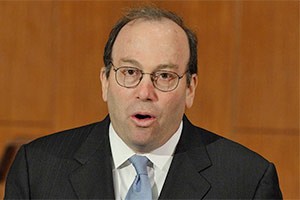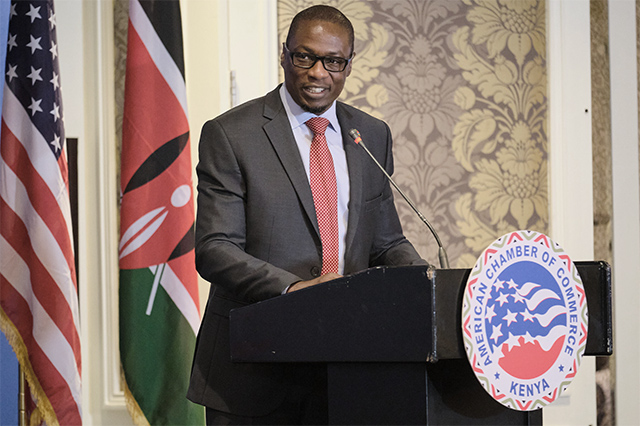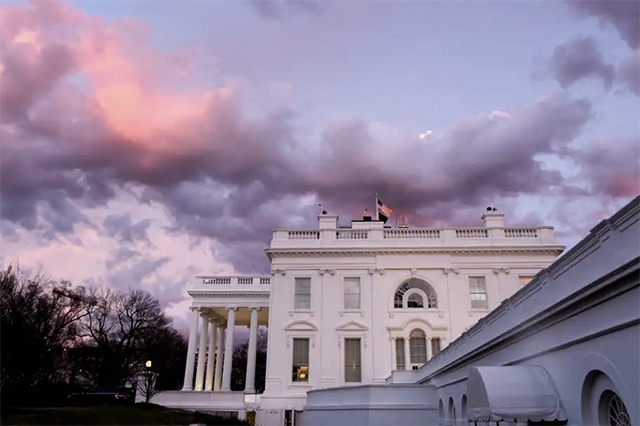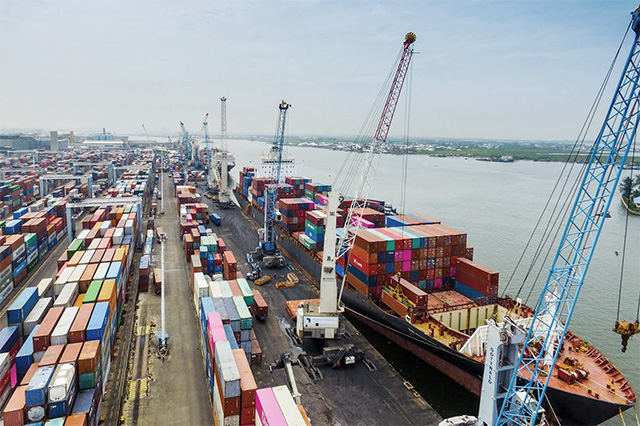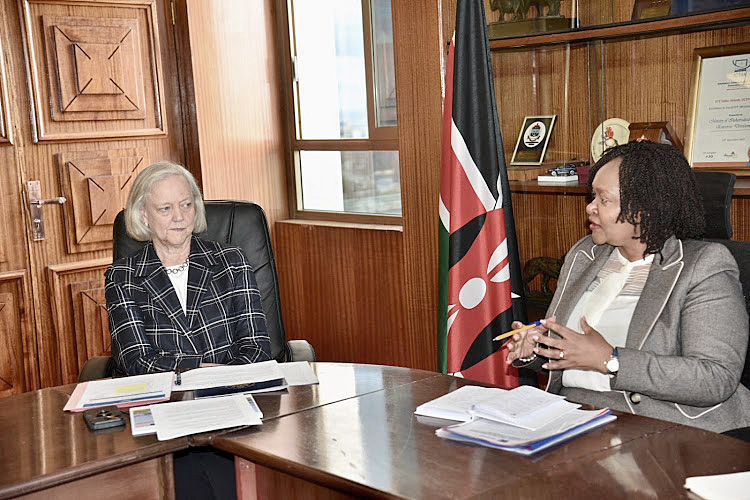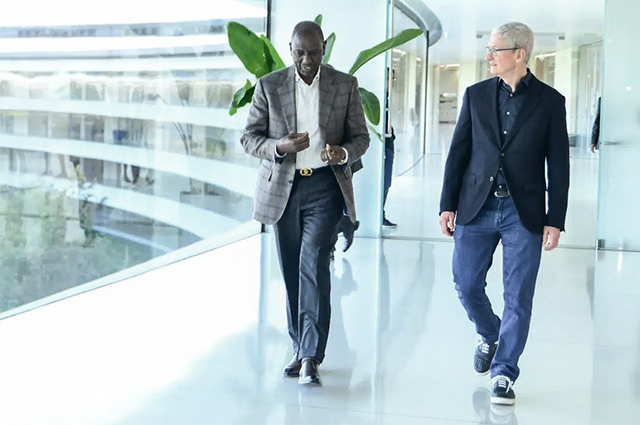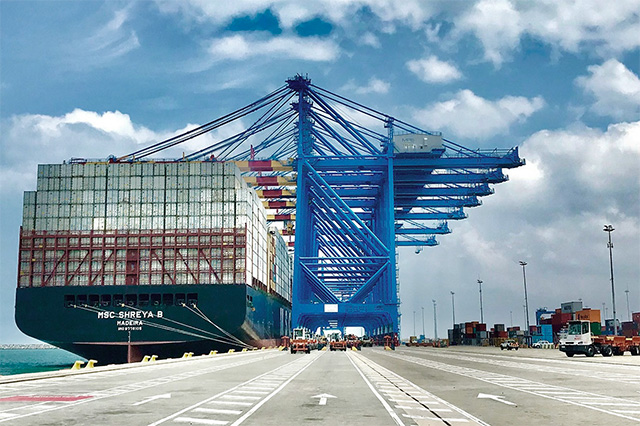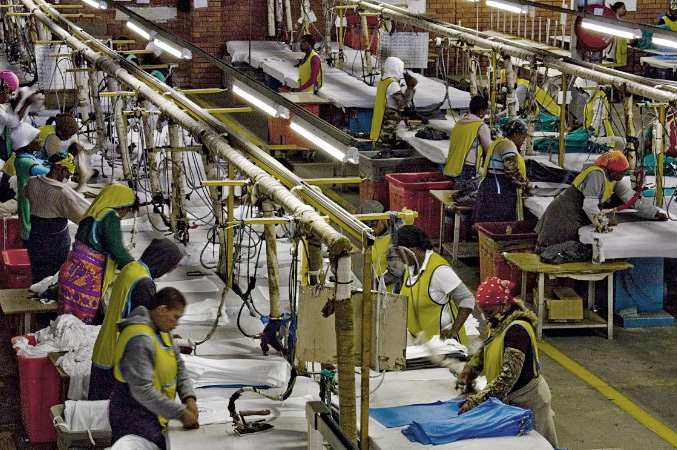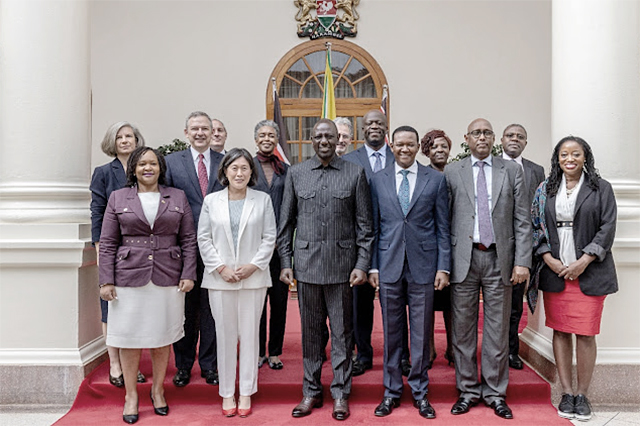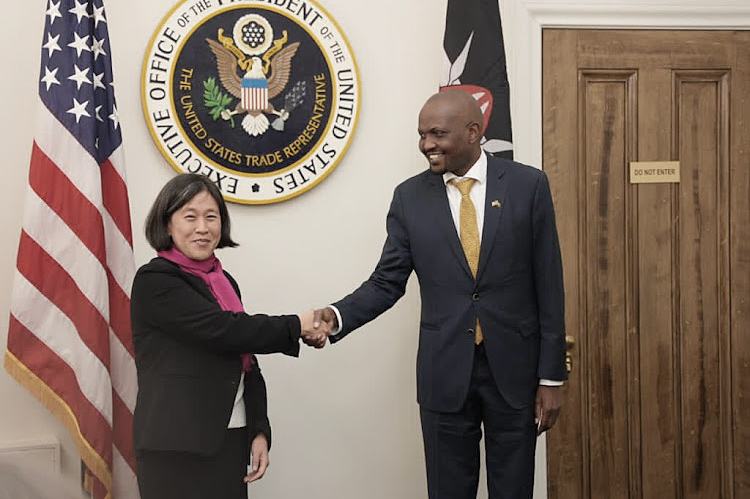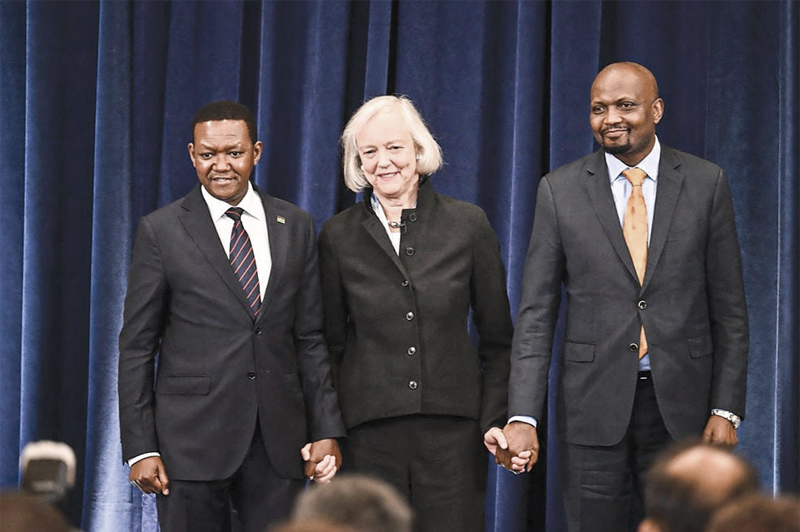Transforming the US-Africa commercial relationship
The U.S. can't afford to ignore investment and trade with Africa now that countries like China and India are increasingly investing in African countries. Witney Schneidman argues that the U.S. must extend the African Growth and Opportunity Act beyond its 2015 expiration and proposes some new initiatives to help American firms do more business across Africa.
This chapter is part of 'Top Five Reasons Why Africa Should Be a Priority for the United States'. Read the full report here and tell us why you think Africa matters to the U.S. (Download the full report on AGOA.info HERE).
The Priority
This 113th session of the U.S. Congress has an opportunity to transform U.S. trade and investment relations with Africa.
A key issue is the extension of the African Growth and Opportunity Act (AGOA), now set to expire in September 2015. The Obama administration and key members of Congress have pledged to work for an “early” extension of AGOA which, presumably, means that the legislation would be extended within the next 22 months. This extension needs to occur for a number of reasons.
For one, the African market is not on the radar screen of the American business community. In fact, the U.S. is effectively ceding the African marketplace to companies from China, India, Brazil, Russia, Turkey, the European Union and elsewhere.
Apart from the natural resource sector and some recent investments by major companies such as GE, Symbion, Wal-Mart, Microsoft and Proctor & Gamble, only 1 percent of U.S. foreign direct investment worldwide is in Africa, and half of this is in extractive industries.[1]
At the same time, U.S. exports to Africa were just over $22 billion in 2012, or about 2 percent of U.S. exports worldwide. While the volume may be small, these exports support more than 100,000 jobs in the United States.[2] Not only is this trade transforming the U.S.-African commercial relationship into a more genuine partnership, it raises the immediate question of how to accelerate U.S. trade and investment with Africa so that more American workers and companies derive a direct benefit.
As Senator Chris Coons writes in the preface to his March 7, 2013 report, Embracing Africa’s Economic Potential, “Engagement with Africa is critical to America’s economic interests in the years ahead. Meeting Africa’s growing demand with American goods and services will strengthen our economy, help U.S. businesses grow and create jobs here at home.”
Why is it Important for the U.S.?
The U.S.’s lack of attention to Africa’s commercial opportunity comes at a time when the region is poised for an economic takeoff. Six of the world’s 10 fastest growing economies (according to data from the International Monetary Fund for 2001-2010) are in sub-Saharan Africa, and a middle class of nearly 350 million individuals, rivaling that of China and India, has emerged across the continent.[3] Moreover, according to the McKinsey Global Institute, by 2020 Africa’s consumers—in areas such as financial services, tourism, telecommunications and retail— are projected to contribute more than five times as much revenue to the region’s economic growth as the natural resource sector.
A key element of Africa’s economic growth has been an improvement in governance. While leaders in some countries continue to remain in office too long, and Freedom House has found that the percentage of “partly free” countries in sub-Saharan Africa has grown from 43 percent to only 47 percent between 2002 and 2012, the increased frequency of elections has led to an expansion of democracy across the continent. In addition, the emergence of civil society, social media and, in many countries, a robust press has contributed to greater accountability of government officials at the national, state and local levels.
The Opportunity for the U.S.
In extending AGOA, therefore, Congress needs to make it more balanced so that the U.S. is doing as much to support the expansion of American trade and investment on the rapidly changing continent as it does to support African exports to the U.S.
From the perspective of the 40 African AGOA beneficiary countries, the extension of the legislation represents a critical opportunity to strengthen and deepen their commercial relationship with the U.S.
To achieve that objective, several critical questions need to be addressed: Why have only an estimated 300 of the eligible 6,400 product lines been utilized; why have only a small group of countries benefitted from the export of apparel and manufactured products; and what other products should be added to make AGOA more relevant to African producers and manufacturers?
There are other issues. Rosa Whitaker, former assistant U.S. trade representative for Africa, estimates that AGOA has created 300,000 new jobs in beneficiary countries.[4] How can this number be increased?
AGOA was never intended to be permanent, so how far past 2015 should the legislation be extended: five years, 10 years, longer? And is it time to graduate certain countries, such as South Africa, or can AGOA be a stepping stone to a more mature trading relationship, as it was intended to be?
The AGOA Forum that is tentatively scheduled to be held in Ethiopia at the end of May 2013 provides an important opportunity for the U.S. and African nations to exchange recommendations on how AGOA can be strengthened.
AGOA continues to be the cornerstone of the U.S.-African commercial relationship but it must do more to help U.S. companies win market share on the continent. As Congress begins deliberations on how to strengthen AGOA, here is one suggestion:
Since its inception, USAID has played a critical role in providing resources for trade capacity building, including the $200 million African Global Competitiveness Initiative, from 2006-2011, and, more recently, the African Competitiveness and Trade Expansion Initiative. This support is vital to the trade hubs in Ghana, Botswana and Kenya, and the satellite office in Dakar, and it has been critical in assisting African businesses exporting to the U.S. under AGOA.
The problem is that the U.S. government provides virtually no support for American businesses seeking to trade or invest in Africa.
The Foreign Commercial Service of the Commerce Department, which should be playing a lead role, has been reduced to a skeletal presence in Africa and has officers only in Kenya, Nigeria and South Africa (the Pentagon now has U.S. troops in five African countries: Djibouti, Seychelles, Ethiopia, Kenya and Niger). Increasingly, U.S. embassies are playing a more active role, and one of Hillary Clinton’s most important legacies as secretary of state was to integrate commercial statecraft into core U.S. diplomatic responsibilities.
Given the size, complexities and differences among the many markets on the continent, the U.S. government has to do a better job supporting American companies in Africa, a market with which they have little experience. China has an estimated 155 commercial attachés in the region, or more than three per country in sub-Saharan Africa. Other countries such as Brazil, India, Russia and Turkey have dramatically increased their commercial presence on the continent as well.[5]
To address the situation, Congress should encourage USAID to restructure trade hubs as U.S. trade and investment centers that would work as closely with American companies coming into the African market as they do supporting African companies exporting to the U.S. under AGOA. The trade and investment centers should utilize foreign service nationals throughout sub-regions to keep U.S. companies informed of market developments, among other services. The cost to staff these centers to work with U.S. companies would be minimal, and companies could pay for services. A restructuring of the trade hubs would significantly enhance the ability of American companies to win market share throughout the continent.
There are other critical issues to consider, such as local content requirements, regional integration and tax incentives for U.S. companies to invest in Africa’s productive sectors. A good place to start, however, would be to help American businesses understand the complexities—and opportunities—of the African market. As Senator Coons writes, “Now is the time to invest in economic engagement with Africa.”
Endnotes
[1] Vivian C. Jones and Brock Williams, “U.S. Trade and Investment Relations with sub-Saharan Africa and the African Growth and Opportunity Act”, Congressional Research Service Report RL31772, November 14, 2012
[2] “U.S. Export Fact Sheet,” U.S. Department of Commerce, International Trade Administration, May 2011 Export Statistics Released July 12, 2011
[3] Ncube, Mthuli, C. L. Lufumpa, and D. Vencatachellum. “The Middle of the Pyramid: Dynamics of the Middle Class in Africa.” African Development Bank, Tunis, 2011
[4] Witney Schneidman and Zenia A. Lewis, “The African Growth and Opportunity Act: Looking Back, Looking Forward,” Brookings Institution, June 2012
[5] Mwangi S. Kimenyi, “Economic Statecraft: Increasing American Jobs through Greater U.S.-Africa Trade and Investment”, Testimony, U.S. Senate Committee on Foreign Relations, July 25, 2011


